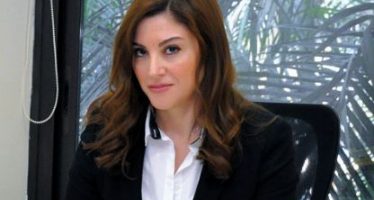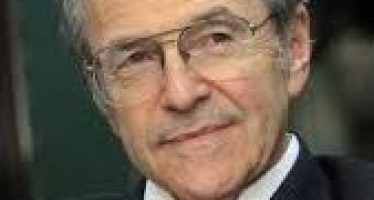From Lebanon to Brazil – Joseph Safra
A Global Presence

The Safra family fortune – today expressed in billions of dollars – originated on the dusty tracks of the well-trodden camel route between Aleppo, Syria and Istanbul. At the dawn of the 20th century, Jacob E. Safra, a successful gold trader, opened a bank in Beirut to help finance the burgeoning trade between the far-flung provinces of the Ottoman Empire and its capital city Istanbul. Soon, Safra Bank was entrusted with the wealth of rich Sephardic Jewish families from Syria and Lebanon who keenly appreciated his care and discretion in financial matters.
Scion of a prominent Jewish / Lebanese family of traders, Jacob E. Safra did well and saw his family’s fortune blossom. However, the turmoil that followed the collapse of Ottoman rule and, later, the regional tensions and strife arising in the post-war years, caused the Safras to make a bold move. The family pulled up its stakes and in 1952 left Lebanon to cross the ocean to a new life in Brazil – then, as now, seen as a land of opportunity.
Three years later in São Paulo, a new Safra Bank was founded. Jacob Safra was joined in the venture by three of his four sons: Edmond, Moise and Joseph. Though their father passed away in 1963, the three brothers continued to expand the business. Indeed, they made it into a global corporate behemoth spanning five continents with interests in banking, agribusiness, telecom, real estate and manufacturing.
“If you choose to sail upon the seas of banking, build your bank as you would your boat, with the strength to sail safely through any storm.”
– Jacob E. Safra
Currently headed by Joseph Safra (75), the Safra Group employs over 8,500 people worldwide and continues to have a strong presence in the Middle East.
According to Forbes, Joseph Safra’s personal net worth currently hovers around $16bn. This lands him on the 52nd spot of the magazine’s famed billionaire’s list. Today, the Safra Group controls an estimated $200bn in assets and follows a conservative and carefully laid out track to future growth. Rather than jump into market bubbles or onto bandwagons, the group keeps its focus on sustainable lines of business that assure stable and sustainable growth. It’s the family secret.
You may have an interest in also reading…
MENA City Lawyers – MCL: Winners in Lebanon
MCL is an innovative, Pan-Arab Law Firm crossing jurisdictional boundaries and challenging Middle Eastern norms by developing the first professional
Sudan Cabinet Shake-Up Boosts Conciliation Efforts
Former US special envoy to Sudan Princeton Lyman has made yet another appeal for the resumption of the political dialogue
Nicholas Brady: Soccer Finance and the Pragmatist Who Fixed a Debt Crisis
Back in the days when a top-scoring soccer player could be enticed for a few million, Brazilian attacker Romario set
















































































